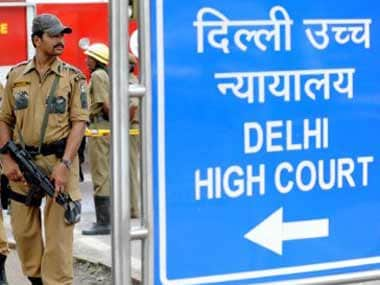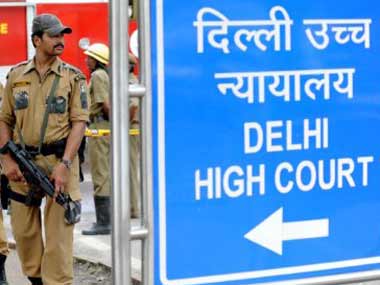A division bench of the Delhi High Court (HC) Thursday ruled that the National Investigation Agency (NIA) lacks evidence to establish the role of Pakistan High Commission in funding separatist activities in Kashmir. The court further noted that the separatist organisation All Parties Hurriyat Conference (APHC) was not a banned outfit under the Unlawful Activities Prevention Act (UAPA). [caption id=“attachment_2639552” align=“alignleft” width=“380”]  Delhi High Court. AFP[/caption] The observations came during the bail plea hearing of Srinagar businessman Zahoor Ahmad Wattali, the main accused in the Kashmir terror funding case, by the bench comprising Justice S Muralidhar and Justice Vinod Goel. The court granted the bail plea of Wattali, who has been charged by the NIA with getting money from Pakistan and providing it to separatist leaders in Jammu and Kashmir. The case was registered after the uprising in the Valley following the killing of Hizbul Mujahideen militant commander Burhan Muzafar Wani in July 2016, which saw a clampdown on protesters which was condemned by both mainstream politicians and separatists. Nine separatist leaders, including Hurriyat (G) chairman Syed Ali Shah Geelani’s son-in-law Altaf Fantosh, his former personal assistant Peer Saifullah and Jammu Kashmir Liberation Front leader Farooq Ahmad Dar, have been in judicial custody in Tihar Jail since 17 August 2016. They were arrested after multiple raids in Jammu and Kashmir and outside the Valley. The court noted in its order that “it has emerged during the course of the hearing” of the case that neither the APHC nor any of its 26 constituent organisations are banned organisations “within the meaning of the UAPA.”The court noted in the order that the charges that the Pakistan High Commission’s first secretary-level officer was acting as a channel to receive funds from Pakistan and deliver them to Wattali could not be proved by the NIA. “It may be noted that at this stage in the chargesheet, no one in the PHC (Pakistan High Commission) is named. It is not asserted that NIA is unable to proceed against such individuals because of diplomatic immunity or status,” the court observed. Although the NIA had, in its chargesheet, accused the Pakistani High Commission in New Delhi of organising functions and meetings with Hurriyat leaders, and giving them funds and instructions on a regular basis, the court held that “except for a reception held at the PHC at New Delhi on 22 March, 2013, no dates of functions/meetings organised by the PHC in Delhi where the Hurriyat and other separatist leaders were given instructions and funds have been mentioned.” “Yet, none from the PHC has been named, much less statement of such a person been recorded to confirm” that Wattali received funds from Pakistan officials in Delhi, the court noted. Allowing Wattali’s bail, the court ordered him to furnish a personal bond of Rs 2 lakh with two “sureties of the like amount.” The court further directed Wattali to report to the case’s investigating officer (when required) and ordered him not to travel outside India without the permission of the court. The court also held that the NIA, which relied on a signed document recovered during the raids in Kashmir showing that Wattali gave funds to some separatist leaders, can’t “constitute material to even prima facie connect the appellant with the crime with which he is sought to be charged.” “The court is not satisfied that a sheet of paper containing typed entries and in loose form, not shown to form part of the books of accounts regularly maintained by the appellant or his business entities, can constitute material to even prima facie connect the appellant with the crime with which he is sought to be charged. The conclusion of the trial court that this document shows the connection of the appellant with the other accused as regards terrorist funding does not logically or legally flow from a plain reading of the document,” the court noted. The court also noted that statements of some of the protected witnesses recorded in the case that have neither been provided to the appellant nor discussed in the chargesheet and have also not been examined by the NIA court to reject bail “can’t be relied before the high court to oppose the bail to Wattali.” “The statements under Section 164 of the Code of Criminal Procedure purportedly recorded of ‘Charlie’ and ‘Romeo’ not being provided to the appellant, not having been discussed in the chargesheet and with those statements not having been examined by the trial court while passing the impugned order, the prosecution ie, NIA cannot rely on such statements in his court to oppose the grant of bail to the appellant,” the order read.
A division bench of the Delhi High Court (HC) Thursday ruled that the National Investigation Agency (NIA) lacks evidence to establish the role of Pakistan High Commission in funding separatist activities in Kashmir.
Advertisement
End of Article


)

)
)
)
)
)
)
)
)



